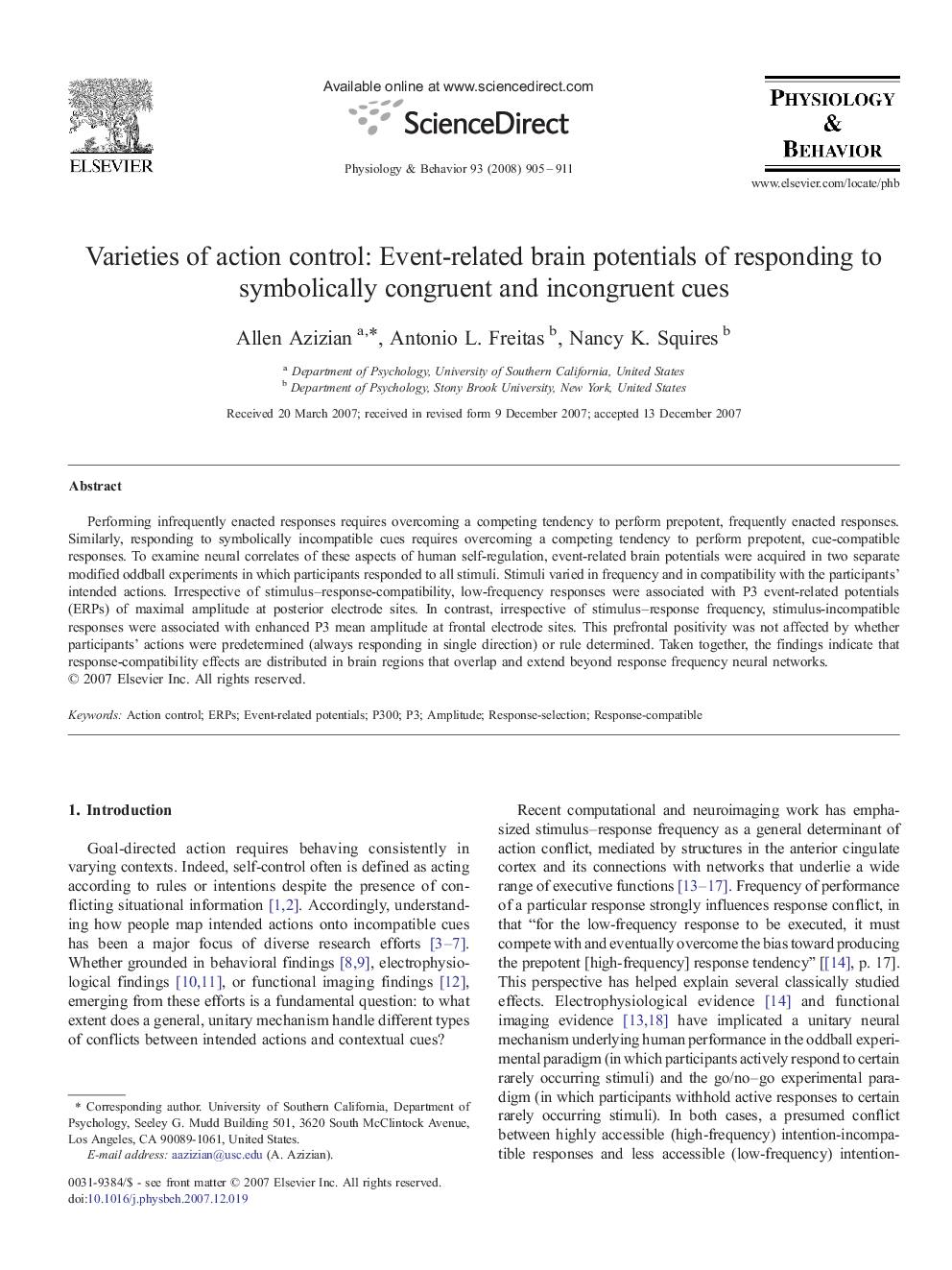| Article ID | Journal | Published Year | Pages | File Type |
|---|---|---|---|---|
| 2845558 | Physiology & Behavior | 2008 | 7 Pages |
Performing infrequently enacted responses requires overcoming a competing tendency to perform prepotent, frequently enacted responses. Similarly, responding to symbolically incompatible cues requires overcoming a competing tendency to perform prepotent, cue-compatible responses. To examine neural correlates of these aspects of human self-regulation, event-related brain potentials were acquired in two separate modified oddball experiments in which participants responded to all stimuli. Stimuli varied in frequency and in compatibility with the participants' intended actions. Irrespective of stimulus–response-compatibility, low-frequency responses were associated with P3 event-related potentials (ERPs) of maximal amplitude at posterior electrode sites. In contrast, irrespective of stimulus–response frequency, stimulus-incompatible responses were associated with enhanced P3 mean amplitude at frontal electrode sites. This prefrontal positivity was not affected by whether participants' actions were predetermined (always responding in single direction) or rule determined. Taken together, the findings indicate that response-compatibility effects are distributed in brain regions that overlap and extend beyond response frequency neural networks.
